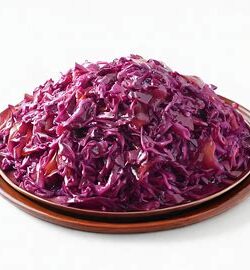Boost Testosterone Naturally With Simple Foods for Men
Boost testosterone naturally with simple foods as it is crucial for men’s overall well-being. While there are various factors that influence testosterone levels, incorporating certain foods into your diet can help support natural testosterone production.
In this article, we will explore simple and readily available foods that can naturally increase testosterone levels and promote hormonal balance in men.
Boost testosterone naturally with healthy foods.
Eggs: Eggs are a nutritional powerhouse, rich in protein, healthy fats, and essential nutrients like vitamin D. They also contain cholesterol, which is a precursor to testosterone production.
Tuna: Tuna is an excellent source of vitamin D, which is associated with testosterone production. It also provides omega-3 fatty acids that support overall health and may positively impact testosterone levels.
Oysters: Oysters are known for their high zinc content, a mineral that plays a key role in testosterone production. Zinc deficiency has been linked to low testosterone levels, so incorporating oysters into your diet can help replenish this important nutrient.
Cruciferous Vegetables: Broccoli, cauliflower, kale, and cabbage belong to the family of cruciferous vegetables. They contain a compound called indole-3-carbinol, which helps regulate estrogen levels, indirectly supporting testosterone balance.
Pomegranates: Pomegranates are rich in antioxidants, which have been shown to enhance testosterone levels and improve overall sperm quality. Enjoy them as a snack, in smoothies, or as a refreshing juice.
Lean Meats: Including lean meats such as chicken, turkey, and lean cuts of beef in your diet provides a good source of protein and essential amino acids, which are building blocks for testosterone synthesis.
Garlic: Garlic contains allicin, a compound that stimulates testosterone production and improves blood circulation. It also provides numerous health benefits and can be easily incorporated into various dishes.
Pumpkin Seeds: Pumpkin seeds are packed with essential nutrients, including magnesium, zinc, and antioxidants, which support testosterone production and overall male health. Enjoy them as a snack or sprinkle them over salads and cereals.
Olive Oil: Replacing unhealthy fats with extra virgin olive oil can have a positive impact on testosterone levels. It contains monounsaturated fats that support heart health and hormone production.
Dark Chocolate: Indulging in moderate amounts of dark chocolate can be beneficial for testosterone levels. Dark chocolate contains antioxidants and flavonoids that enhance blood flow and promote overall well-being.
Incorporate simple and readily available foods
While diet alone may not drastically increase testosterone levels, incorporating these simple and readily available foods into your diet can support natural testosterone production and hormonal balance. Remember to combine a healthy diet with regular exercise, sufficient sleep, and stress management for optimal results.
By adopting a balanced lifestyle and including these testosterone-boosting foods, you can take proactive steps toward promoting your overall health and well-being as a man.
HISTORY
History of Scientific Inquiry into the Relationship between Food and Testosterone Levels
The study of the relationship between food and testosterone levels has been a subject of scientific inquiry for several decades. Testosterone, a hormone primarily associated with male reproductive health, plays a crucial role in various physiological processes, including muscle development, bone density, and sexual function. Researchers have sought to understand how different dietary factors may influence testosterone production and levels. Let’s explore the history of scientific investigation into the connection between food and testosterone.
Early Observations:
Early observations of the relationship between diet and testosterone levels can be traced back to the mid-20th century. Researchers began investigating the impact of specific nutrients, such as protein, fats, and carbohydrates, on hormone production and overall health. Initial studies focused on animal models, exploring the effects of dietary changes on testosterone levels in rodents.
Dietary Fat and Cholesterol:
In the 1980s and 1990s, studies started examining the role of dietary fat, particularly saturated fats and cholesterol, on testosterone production. Researchers hypothesized that higher fat intake might promote higher testosterone levels, as cholesterol is a precursor to testosterone synthesis. However, conflicting findings emerged, with some studies suggesting a positive association between fat intake and testosterone, while others found no significant correlation.
Plant-Based Diets:
As interest in vegetarian and vegan diets grew, scientists began investigating the impact of plant-based eating patterns on hormone levels, including testosterone. Some studies suggested that plant-based diets, which tend to be lower in saturated fats and higher in fiber, may be associated with lower testosterone levels. However, the findings were inconclusive, and other studies indicated that plant-based diets could still provide adequate nutrition for optimal hormone production.
Specific Nutrients and Testosterone:
Scientists have also examined the impact of individual nutrients on testosterone levels. For example, studies have explored the relationship between zinc, magnesium, and vitamin D intake and testosterone production. These nutrients are involved in various processes related to hormone synthesis and metabolism. Research suggests that maintaining adequate levels of these nutrients through a balanced diet or supplementation may support healthy testosterone levels, particularly in individuals with existing deficiencies.
Phytoestrogens and Testosterone:
Phytoestrogens, naturally occurring compounds found in certain plant-based foods, have also been of interest in relation to testosterone. Phytoestrogens have a chemical structure similar to estrogen, leading to concerns that they may disrupt hormonal balance, including testosterone levels. However, studies have shown that the consumption of moderate amounts of phytoestrogen-rich foods, such as soy, does not significantly impact testosterone levels in men.
Exercise and Lifestyle Factors:
In addition to diet, scientists have explored the influence of exercise and lifestyle factors on testosterone levels. Regular physical activity, particularly resistance training, has been associated with increased testosterone production. On the other hand, factors such as obesity, stress, and inadequate sleep have been linked to lower testosterone levels. These findings highlight the importance of a holistic approach to maintaining hormonal balance, considering both dietary and lifestyle factors.
Ongoing Research and Future Directions:
The study of the relationship between food and testosterone levels remains an active area of research. Scientists continue to investigate the effects of specific foods, dietary patterns, and lifestyle factors on hormone production and regulation. However, it is important to note that testosterone levels are influenced by a complex interplay of factors, including genetics, age, and overall health.
It is worth mentioning that individual responses to dietary changes may vary, and any dietary modifications should be undertaken with consideration for overall health and in consultation with healthcare professionals. As scientific knowledge advances, a comprehensive understanding of the intricate relationship between food and testosterone will continue to evolve.

